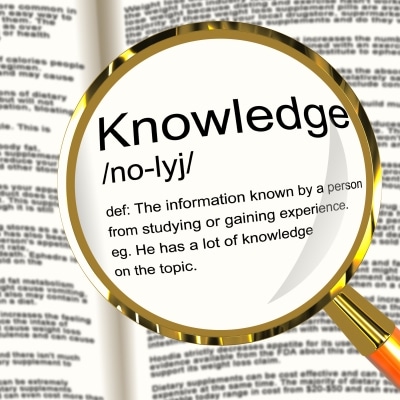Are you tired of asking, “What’s this mean,” when you come across a new term? Probably. I’m in the business, but the lingo changes so rapidly, it’s easy even for those in the industry to get lost. For example, less than thirty years ago, “optimize” just meant “to make as perfect, effective, or functional as possible” (thanks Webster). Now… now it means more than you can put in one blog post. I know; I’ve tried.
I remember – not too long ago, it seems – when the term DAO came skipping through the industry’s verbiage. “DAO,” I thought. “What does that mean?” I had to dig around until I came up with the answer. “Oh. Duh. Digital Asset Optimization.” Because, see, that’s different than just making sure all your content and all online marketing material is as functional as possible. -But hey, to whoever coined that term, kudos! That’s why we get the opportunity to present our latest robust SEO dictionary, right?
Well, now you know how this particular version came about. -But, do you know why it’s important to keep updated? Why did we dig for the meaning of DAO? Why is all of this so darned important? To which questions I say, “You have to learn to talk the talk if you’re going to understand how to walk the walk.”
- You have to know SEO terminology to become an optimizer. Otherwise, who’s going to be able to answer questions when you need another eye on the projects? No one will understand what you’re talking about.
- You need to know SEO terminology if you’re going to talk to an agency that specialises in SEO about your site. Otherwise, how are you going to understand what they’re telling you?
- You should know SEO terminology if you’re going to DIY. Otherwise, how can you understand what industry people are telling you so you can implement it?
In other words, no matter what you’re doing, it’s important to know the lingo before you dive in. What’s a citation? What’s the difference between a branded and non-branded key term? View the handy, interactive PowerPoint presentation below. Read it. Study it. Bookmark it, come back later, and test yourself. Gain the knowledge necessary to survive in an SEO world!
As I said at the beginning, it’s important to know the lingo. I hope you now know a little more optimization and internet marketing terminology; if you didn’t see something you’d like a definition for, make sure to drop us a note in the handy comment box below. We’ll keep updating our dictionary as the terms change, grow and multiply, so keep coming back and checking in!




































21 Responses
What a good idea! I know when I was first introduced to SEO I had no idea what any of the terminology meant. A lot of the clients I work with still don’t know that much either because it’s such a new field to work in. It’s great to have access to definitions like this.
You really have to be familiar with the terms used in SEO. Thanks for sharing some ideas. Keep it up!
Thanks Andrew 🙂 We’ll keep adding new ones I’m sure.
Really great list of terms. I blog on this niche daily and even can get lost in all the lingo. I’ll be using this glossary as a great personal resource. Thanks again.
Hey Josh, please help yourself we do have a downloadable version! 🙂
What a great idea Gabriella. You have inspired me now to create my own glossary of terms for my clients. I have an upcoming webinar I am preparing for and this would be a great resource to provide
Thanks Glen…this was actually fun. Which reminds me, I should update with new revisions. The interactive, downloadable .ppt file is a great give away.
Does SEO earlier called DAO? I think Seo 10 years back was really a simple job. But after many google updates it has become a very difficult task. Hope you share more posts on seo.
This blog post is awesome! I come to know how SEO dictionary is helpful after reading this post. Going to bookmark it. thanks
Will it explain all the terms related to SEO. And give some knowledge to us about SEO.
Hello Ajay, the dictionary will give you over 140 terms, words, slang, etc. which will describe one aspect or another about marketing, SEO, PPC, etc. We are adding more words monthly. In regards to knowledge, that depends on how much you don’t know? Besides, all you have to do is read our blog and the ones we recommend (at the bottom of our blog) and you will get a great head start on understanding SEO.
Thanks Gabriella. I will definitely follow your blog.
Ajay 🙂 Thank you!!
SEO dictionary? But what about the Wiki’s ..
If I don’t understand any term I will prefer wikipedia…
Hey Vishai, of course you could also Google a term… many ways to get information. The beauty here (for us) is our definitions come from years of experience, research and peers in our industry. Last but not least our latest is a downloadable and interactive desktop version.
thanks for the informaton
You’re welcome Craig, thanks for dropping by. 🙂
The Robust SEO Dictionary must be a very exciting tool. I am new in the field of SEO and there are terms that gives me migraine once I came across them. There are time that not even online dictionaries are able to give me really suitable definitions for these terms.
We do what we can, considering we started with 20 words. Now we’re up to over 140…I’m sure we’ll be adding more in the future.
I have been browsing online more than 3 hours today, yet I never found any interesting article like yours. It is pretty worth enough for me. In my view, if all website owners and bloggers made good content as you did, the net will be much more useful than ever before.
That’s why we get the opportunity to present our latest robust SEO dictionary, right?